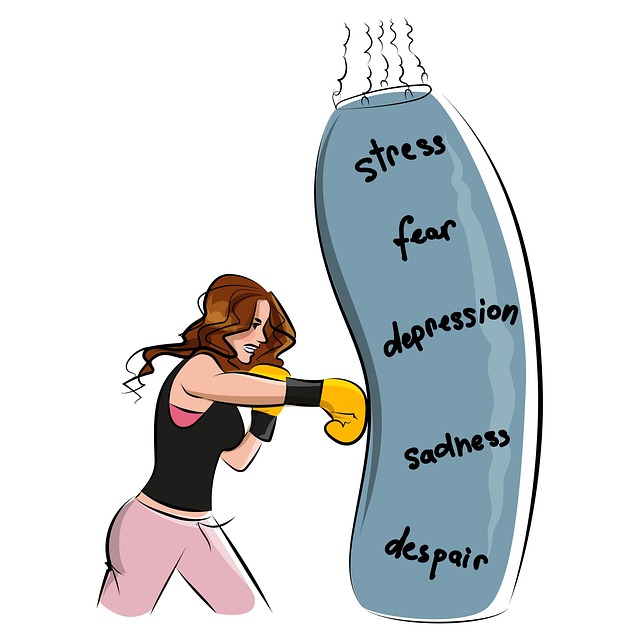Self-care is vital in today's stressful world, as neglecting it can lead to severe mental health issues, per Denver Alcohol Abuse Therapy. Simple practices like meditation, exercise, and quality sleep build resilience. Community outreach programs provide support, enhance connections, and promote Mind Over Matter principles for collective well-being. Barriers like alcohol abuse or mental health struggles can be overcome with professional help, like Denver Alcohol Abuse Therapy, to develop healthy habits that prevent burnout and improve lifestyle balance.
In today’s fast-paced world, self-care is not a luxury but a necessity for maintaining mental well-being. The practice of self-care involves intentional activities that nurture your physical, emotional, and psychological health. This article guides you through understanding the significance of self-care, exploring effective strategies to enhance daily routines and prevent burnout, and offering solutions to overcome barriers in building lasting self-care habits. For tailored support, consider Denver Alcohol Abuse Therapy, where professionals are dedicated to helping you thrive.
- Understanding the Importance of Self-Care for Mental Well-being
- Strategies to Enhance Daily Routines and Prevent Burnout
- Overcoming Barriers and Building Lasting Self-Care Habits
Understanding the Importance of Self-Care for Mental Well-being

Self-care isn’t a luxury; it’s a necessity for maintaining mental well-being. In today’s fast-paced world, where stress and pressure are omnipresent, taking time to nurture ourselves becomes increasingly vital. Denver Alcohol Abuse Therapy highlights that neglecting self-care can lead to burnout, anxiety, and even depression. It’s like tending to a garden—if you don’t water and fertilize it regularly, the plants (or in this case, your mental health) struggle to thrive. Simple acts of self-care, such as meditation, regular exercise, and quality sleep, form the foundation for resilience building. These practices not only reduce stress but also enhance overall happiness and fulfillment.
The concept goes beyond individual efforts; community outreach program implementation plays a significant role in promoting self-care on a larger scale. By fostering connections and providing support systems, communities can encourage members to embrace Mind Over Matter principles. This collective approach to well-being ensures that everyone has access to resources and activities that prioritize mental health, ultimately strengthening the overall resilience of the community against stress and challenges.
Strategies to Enhance Daily Routines and Prevent Burnout

In today’s fast-paced world, it’s easy to fall into a rut and neglect our basic needs, leading to burnout and mental health struggles. To avoid this, incorporating structured self-care practices into daily routines is essential. Start by designing a morning ritual that includes activities like meditation or journaling to set a calm tone for the day ahead. Regular exercise, even short bursts throughout the day, can significantly boost mood and energy levels, while also providing an outlet for stress relief. Proper sleep hygiene is another cornerstone of self-care; establishing consistent bedtimes and wake-up times helps regulate natural body rhythms, allowing for optimal rest and recovery.
Consider enrolling in a Mental Wellness Coaching Program or exploring Denver Alcohol Abuse Therapy options to gain tailored support. These resources can help individuals develop Mind Over Matter principles, empowering them to navigate challenges with resilience and self-compassion. By integrating these strategies into daily life, individuals can cultivate sustainable habits that promote mental wellness and prevent burnout, fostering a healthier, more balanced lifestyle.
Overcoming Barriers and Building Lasting Self-Care Habits

Overcoming barriers to self-care is a crucial step in fostering lasting habits that contribute to overall well-being. Many individuals struggle with incorporating self-care practices into their daily routines due to various challenges. For instance, those battling alcohol abuse or other mental health issues often find it hard to prioritize personal needs, as managing symptoms and coping with life’s demands can take precedence. In Denver, where access to Alcohol Abuse Therapy is readily available, seeking professional help becomes a stepping stone towards personal growth.
Therapy not only provides tools for mood management but also equips individuals with effective coping skills development and conflict resolution techniques. By learning to navigate life’s challenges without resorting to unhealthy behaviors like substance abuse, one can begin to build a stronger foundation for self-care. Through consistent practice, these habits become integral parts of one’s lifestyle, leading to improved mental health and enhanced quality of life.
Self-care is a powerful tool for improving mental well-being, as evidenced by the growing popularity of Denver Alcohol Abuse Therapy. By understanding the importance of self-care and implementing strategies like structured daily routines and overcoming barriers, individuals can build lasting habits that enhance overall health. Through consistent practice, these self-care rituals not only prevent burnout but also serve as a foundation for a happier, more balanced life.














